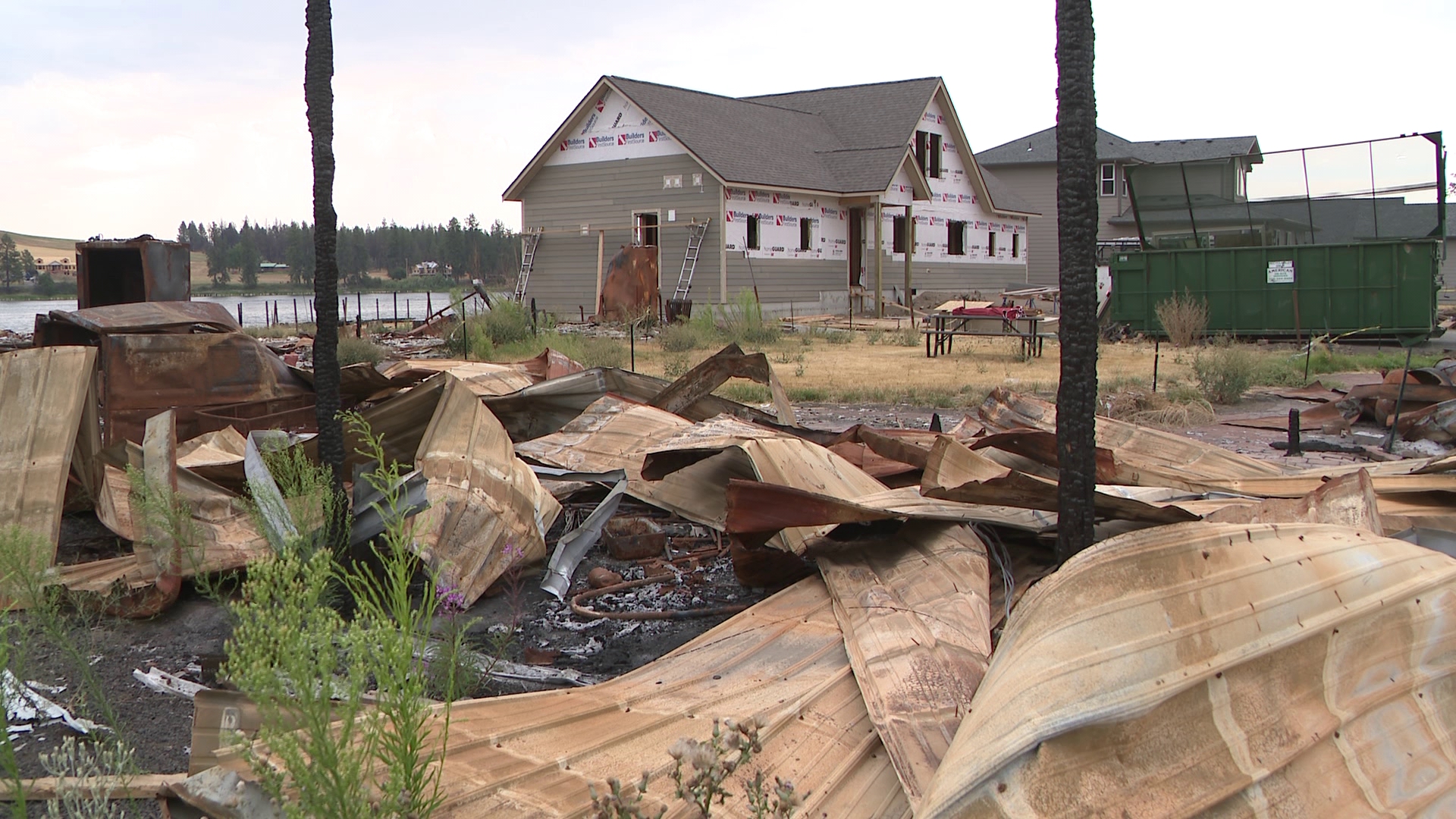SPOKANE COUNTY, Wash. — Over the last year, so much has been done to rebuild neighborhoods in Medical Lake and Elk/Chattaroy after fires devastated the areas. However, there is still so much to be done to get these residents back on their feet.
KREM 2’s Whitney Ward sat down with Spokane County Commissioner Al French to talk about some projects that haven’t even started yet and what it is going to take to get to the next steps of recovery.
A transcription of the conversation can be found below.
Al French: The fact that we've got rebuilding going on right now, this is, this is not just a house, this is a community that's being rebuilt.
Whitney: What did it take to get here?
Al French: You know, it was a Herculean effort for a lot of folks. I mean, a lot of people really stepped forward to help.
Whitney: Obviously, it's more than just homes that burned, so what is still needing to be done?
Al French: You know, there is still debris that is in some of the lakes from the fire that hasn't been cleaned up. We've got different agencies all saying it's not my job. Well, the bottom line is, the lake needs to be cleaned up. So figure it out.
Whitney: Do you think that the county got enough help from the state, from the federal resources, to kind of also help with bigger projects?
Al French: You know, we got help initially from the state, and obviously the county kicked in. The federal process was very dragged out and very laborious. It's unfortunate that at the federal level, FEMA doesn't recognize that wildfires are not any different than tornadoes or hurricanes or any other natural disaster, so the federal government needs to get more responsive in terms of how to help folks.
Whitney: One of the things that seemed to come to light after this fire was neighborhoods that had been built with only kind of one way in, one way out. What can the county do to try to curb new building and make sure that that isn't an issue as we move forward?
Al French: That is going to be one of the things that we focus on. For a long time, you could build a dead-end road and have 20 homes on it, but you know, if you don't have access for a fire truck to get in or a way for people to exit, that's a disaster waiting to happen. So we are, we are paying much more attention to how those developments occur.
Whitney: Is this kind of the reality now, of knowing that wildfires can get into normal neighborhoods that used to seem and feel very safe?
Al French: We used to, we used to all have a sense of security about being into a neighborhood, but then when disaster strikes, it affects the whole neighborhood, so we've got to be much more resilient in how we plan for the future.
While it is certainly encouraging to see so many homes rebuilt after these devastating wildfires, but that is not the reality for everyone. Many people have never been able to return home. Many people are still in temporary housing, or living with friends or family.
Often it is because they were uninsured, or underinsured. Commissioner French said there is help available for those people too. The Long Term Recovery Group has been a tremendous help for a lot of people.
Whitney: What do you think is the county's role in that, being able to help people, for example, who were uninsured or underinsured?
Al French: You know, I'm really proud of what the county did because we did a lot of things we've never done before. And an example, you know, we slashed the cost of permits for building, we allowed people to get permits early so they could avoid the Building Code Council change. I mean that that action alone probably saved some of these homeowners $30,000 - $50,000. We were able to get money through ARP to help with debris cleanup and, we did some expediting for asbestos testing and mitigation.

